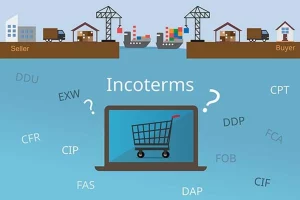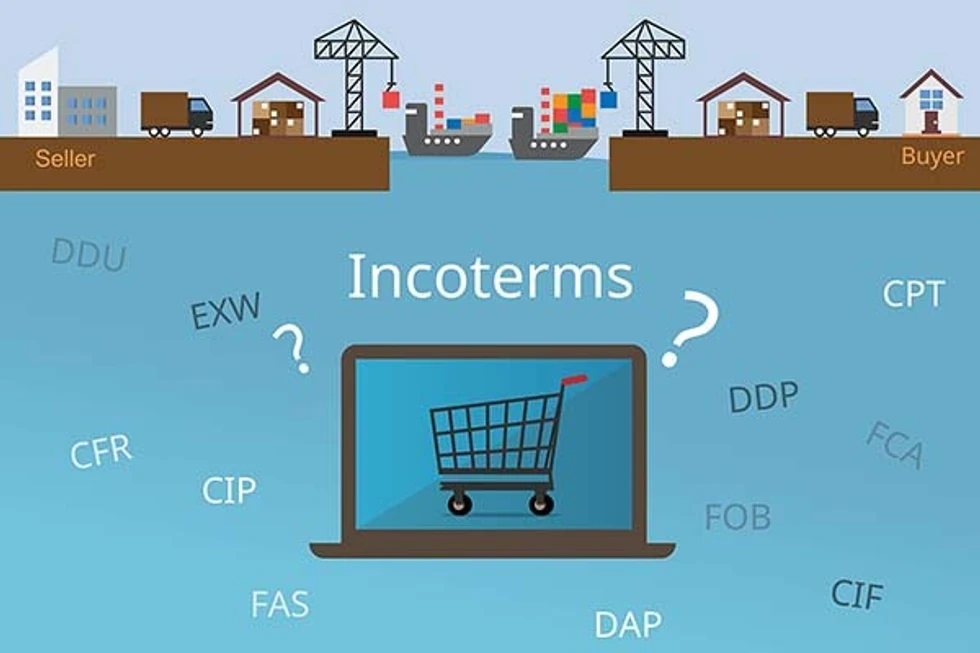Understanding Incoterms: A Complete Guide to International Trade Terms
In international trade, understanding the terms of sale is essential to ensure smooth transactions and minimize misunderstandings between buyers and sellers. This is where Incoterms (International Commercial Terms) come into play. These standardized terms, developed by the International Chamber of Commerce (ICC), define the responsibilities of buyers and sellers in terms of transportation, risk, and cost allocation during the import and export process. In this Incoterms guide, we will delve into the essential concepts, the different types of Incoterms, and frequently asked questions.

فهرست مطالب
ToggleWhat Are Incoterms?
Incoterms, established by the International Chamber of Commerce (ICC), are a set of three-letter trade terms that define the responsibilities and obligations of buyers and sellers in international transactions. These terms are critical because they clarify who is responsible for transport, insurance, duties, and other logistical costs during the shipment of goods. By setting these expectations, Incoterms prevent confusion, legal issues, and disputes between trading partners.
The Importance of Incoterms in International Trade
Incoterms serve as a universal language for trade, ensuring that all parties involved understand their roles clearly. They provide guidelines for who is responsible for various stages of the shipment process, such as delivery, risk transfer, and customs clearance. When used properly, Incoterms can help minimize potential issues that may arise due to differences in national laws or regulations.
Types of Incoterms
There are 11 Incoterms, each suited to specific types of international transactions. The rules govern everything from delivery locations to risk-bearing and insurance costs. Below is a table of Incoterms guide with their primary responsibilities:
| Incoterm | Seller's Responsibility | Buyer's Responsibility |
|---|---|---|
| FAS (Free Alongside Ship) | Seller delivers goods alongside the ship | Buyer takes care of loading, transport, and insurance |
| FOB (Free on Board) | Seller delivers goods on board the vessel | Buyer pays for the main transport, insurance, and import duties |
| CFR (Cost and Freight) | Seller covers cost and freight to a named port | Buyer is responsible for insurance and unloading |
| DPU (Delivered at Place Unloaded) | Seller delivers goods and unloads them at the destination | Buyer is responsible for customs clearance and unloading |
| CIP (Carriage and Insurance Paid To) | Seller pays for transport and insurance | Buyer is responsible for customs clearance and import duties |
| CIF (Cost, Insurance and Freight) | Seller covers cost, freight, and insurance | Buyer handles unloading and import clearance |
| DDP (Delivered Duty Paid) | Seller is responsible for all costs, including duties | Buyer handles unloading and distribution |
| FCA (Free Carrier) | Seller delivers goods to a carrier at a designated place | Buyer handles the main carriage, insurance, and customs |
| CPT (Carriage Paid To) | Seller pays for transport to a named destination | Buyer handles insurance and import clearance |
| DAP (Delivered at Place) | Seller is responsible for delivery to the destination | Buyer handles customs clearance and duties |
| EXW (Ex Works) | Goods made available at the seller's premises | Buyer arranges all transport, insurance, and customs |
Each Incoterm has specific conditions that determine the point at which risk and responsibility transfer from the seller to the buyer.
How Do Incoterms Affect International Trade?
Incoterms have a profound impact on the way international transactions are conducted. The terms affect:
- Risk Allocation: Incoterms clearly outline when the risk of loss or damage to goods shifts from the seller to the buyer. Understanding these rules helps prevent disputes over who is liable for damage during transit.
- Cost Allocation: These terms help determine who pays for transportation, insurance, customs duties, and other associated costs. This can significantly impact the cost structure of a deal.
- Logistical Efficiency: By clarifying responsibilities, Incoterms ensure that each party knows their role in the shipping process, which helps avoid delays and misunderstandings.
- Legal Framework: Incoterms provide a legal framework that helps resolve disputes that may arise during the course of a transaction. They are widely accepted by courts and arbitration bodies.
How to Choose the Right Incoterm for Your Transaction?
Choosing the appropriate Incoterm is crucial, as it impacts both the logistics and costs of an international transaction. Here are some factors to consider when selecting an Incoterm:
-
Shipment Mode:
Some Incoterms are suitable for certain modes of transportation. For example, FOB (Free on Board) is often used for sea freight, whereas CPT (Carriage Paid To) is more commonly used for multimodal transport.
-
Risk and Responsibility:
Consider how much control and responsibility each party wants to have over the shipment. The buyer might prefer to take control of the shipment with terms like EXW (Ex Works), while a seller may prefer DDP (Delivered Duty Paid), where they manage the entire process.
-
Cost Distribution:
Understand the costs that you or your trading partner are willing to absorb. Terms like CIF (Cost, Insurance, and Freight) mean the seller pays for more aspects of the shipment.
-
Destination:
Consider where the goods are being delivered. Terms like DAP (Delivered at Place) ensure the seller is responsible for delivery to the destination point.
Frequently Asked Questions (FAQs)
-
What does Incoterms stand for?
- Incoterms stands for International Commercial Terms. They define the roles and responsibilities of buyers and sellers in international trade.
-
Why are Incoterms guide important?
- Incoterms are crucial for clarifying risk, responsibility, and cost allocation between buyers and sellers. They prevent disputes and ensure smooth international transactions.
-
Can Incoterms be changed in a contract?
- Yes, Incoterms can be modified by mutual agreement between both parties. However, any changes must be clearly stated in the contract.
-
Which Incoterm should I use for sea freight?
- FOB (Free on Board) and CFR (Cost and Freight) are commonly used for sea freight, depending on the level of responsibility the buyer and seller wish to assume.
-
What is the difference between FOB and CIF?
- In FOB, the seller covers the cost until the goods are loaded on the ship. In CIF, the seller also covers the insurance and freight costs until the goods reach the destination port.
-
Is DDP the best option for the seller?
- DDP (Delivered Duty Paid) is favorable for the seller because it gives them full control over the shipment process and costs, but it also requires the seller to handle customs duties and taxes.
All Videos
Conclusion
Understanding Incoterms guide is essential for anyone involved in international trade. These terms help streamline communication, ensure fair cost and risk distribution, and provide a legal framework for transactions. By choosing the right Incoterm, businesses can ensure smoother operations, fewer disputes, and greater efficiency in the import/export process. Always remember that clear communication and understanding of these terms are crucial for successful international trade. Whether you’re an exporter, importer, or logistics provider, having a solid grasp of Incoterms will facilitate your global business transactions.




